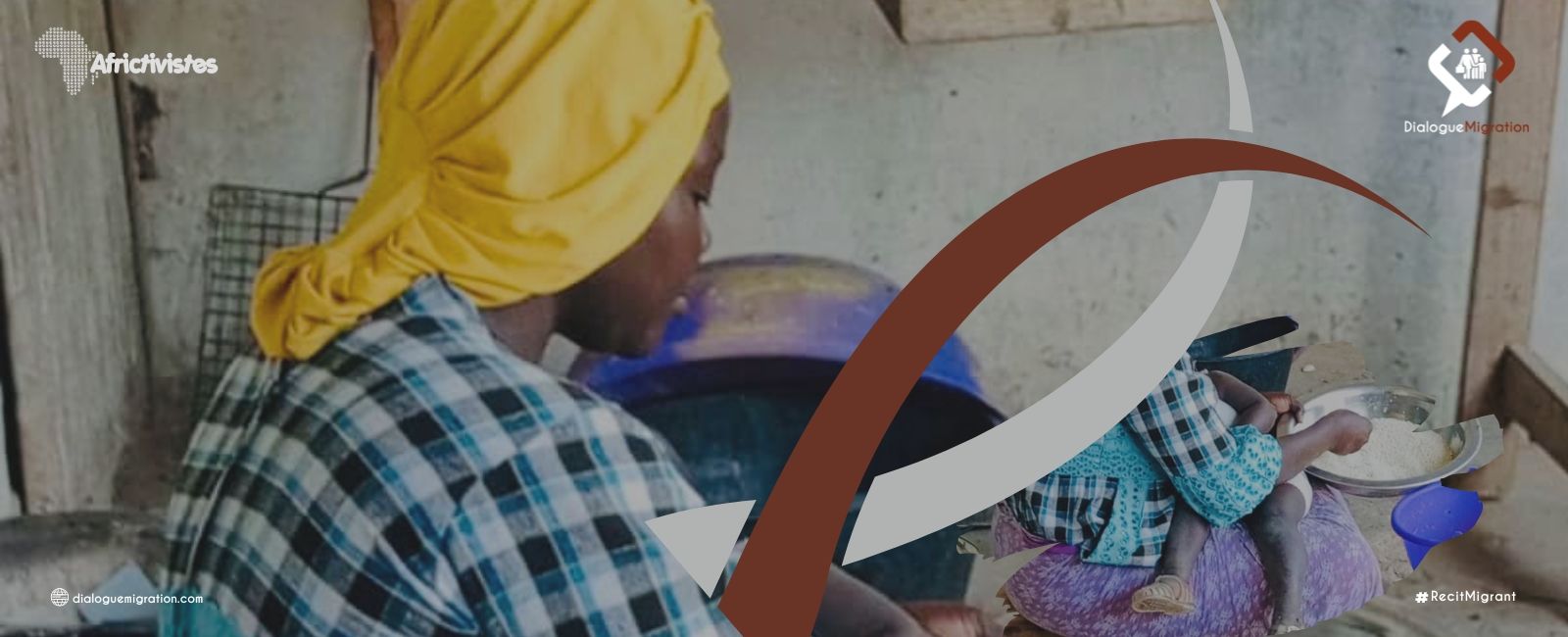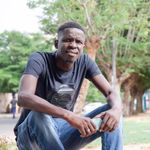

From 1991 to 2002, the civil war that broke out in Sierra Leone left at least 120,000 dead (200,000 dead according to the CIA), thousands of people maimed (amputation of hands to prevent them from working and especially from voting) and more than 2.5 million displaced people. It has destroyed families, destabilized an entire country, created a vacuum and left eternal trauma on those it directly impacted, according to IRIN, a unit of the UN Office for the Coordination of Humanitarian Affairs. The war is disgusting!
In this hell, Mariama Konté lived until the age of 10 years, born to a Senegalese father and a Sierra Leonean mother, in 1990, in the upscale suburbs of Freetown. Her life (and that of his entire family) was turned upside down in 1999, when her father, a wealthy diamond dealer, was captured during a business trip to the conflict-ridden east of the country and killed by rebels.
“The diamond stole my childhood and my father”
Our interlocutor who now lives in the commune of Mboro, 100 kilometers from Dakar, with her husband and three children, has named his culprit. And imagine that each individual would like to welcome the latter into his home. “The diamond robbed me of my childhood and my father. Diamonds are not good,” says the now stay-at-home mother, who was found preparing the evening meal.
Indeed, the diamond mines of Sierra Leone are at the origin of the civil war that lasted more than 10 years in this country. According to the International Military Tribunal at Nuremberg, which convicted and sentenced him, Charles Taylor is primarily responsible for Sierra Leone’s civil war. The former Liberian President, who wished to extend his rule to the rich diamondiferous provinces of Sierra Leone, has always supported Foday Sankoh’s RUF militarily, economically and politically.
To go back to our subject, it took several weeks of meetings to convince Mariama to plunge us back into this dark ode of her history. To tell it for her is to accept to relive the nightmare of the disappearance of her father and the tipping of her family into absolute insecurity and precariousness. “I still can’t grieve my father’s loss. For that, I must first know how he died. I was so young at the time. My father, Ousseynou Konté and one of his friends and partners were heading to Kono Province (eastern Sierra Leone) in search of diamonds, when they were caught up by the rebels who were heading to the capital, Freetown, where they had planned to kill everyone,” says Mariama.
For a brief historical reminder, at the end of 1998, when Sierra Leone was in the midst of a civil war, a mass offensive allowed the rebels of the RUF (Revolutionary United Front) and the AFRC (Council of Revolutionary Armed Forces) to occupy the capital Freetown for 3 weeks in January 1999. During these 3 weeks, Freetown is set on fire and blood during Operation No Living thing. This, after the death sentence of their historic leader, Fodey Sankoh. The result is dramatic, more than 6 000 deaths will be recorded and tens of thousands of people leave the capital as they can.
“How my brother risked his life by arriving from Italy to save us”
Mariama, her mother Diankey Grewou and her two siblings lived the longest and most demanding days of their lives in this general rescue. Especially after the news of the death of the father of the family. “There was no one left to protect us. Outside, it was chaos. Schools and businesses were all closed. We couldn’t last more than two weeks in our luxurious home. The bandits, taking advantage of the situation, targeted residential neighborhoods to commit robberies with murder, ” says our interlocutor who adds: “it is in these circumstances that my big brother, Ibrahima, arrived from Italy urgently to get us out of the country. I still remember his tears when my mother told him in the vehicle that was taking us to Gambia how our dad was killed by the rebels. It is to my brother that we owe our survival. Diamonds are bad.”
On the death of her father, Mariama revealed: “It sounds like a legend, but mom firmly believes in this story told by one of my uncles who had gone to look for my father’s remains. According to him, because of the impossibility of piercing his body with bullets, because of mystical armor, the rebels locked him in his vehicle with his friend before setting it on fire.”
Mariama does not remember how her brother managed, in January 1999, to get them out of the hell of Freetown and drop them off in Banjul where some members of her maternal line resided. But she remembers that a month after their arrival, her mother transported her to Dakar (Senegal) to entrust her to her paternal aunt who lives in the Petit Mbao district before returning to Gambia. She was in her ninth year.
Rebuilding a life
We are not recovering from a tragic childhood marked by war, chaos and the loss of loved ones in circumstances as harsh as those in which Mariama Konté’s father left. But the inherent reality of any tragedy is that there are beings it separates and others it brings together and unites. After two years with her aunt in Petit Mbao (on the outskirts of Dakar), she was transported to another aunt in Medina (near downtown Dakar) to continue her studies at a college in the capital. “It wasn’t easy for me to start from scratch. To go from the opulence of my residential neighborhood of Freetown to a life in a large family with modest incomes. But, despite my young age, I knew the hell I had just come from. So, I adapted,” she says.
Before explaining why, she dropped out of school: “Adjusting to family life was one thing. But continuing studies in a brand new system based on the French language was another. I started with the English-speaking system in Sierra Leone and it was a bit complicated for me. And then the means were not there. So, I decided to stop in 4th grade.”
“The Diamond separated me from my father, the Gold united me with my husband”
Between household chores in another family home in Medina and small business activities in the busy streets of this popular district of the Senegalese capital, Mariama crossed paths with the man who would become her husband. A jeweler named Oumar Mbow, who melted gold in one of his father’s counters. “I was walking past this canteen to sell my bottles of natural juice. And often, I would find a young man in front of his metal melting machine. The strong heat that emanated from the place did not seem to impact him. At first, he bought two bottles of bissap juice and we chatted about everything and nothing. But over the months, we forged a friendly and then loving relationship. I was fascinated by his talent for taming metals. And he found great pleasure in showing me how,” says Mariama.
Who continues with a touch of teasing smile as if to taunt fate: “That’s how he showed me several times, how to make gold go from powder to liquid. And how to turn it into different shapes in jewelry, bracelet, chain etc. While fleeing the curse of the diamond, I came across blessed gold. The Diamond stole my father. Gold gave me a husband.”Mariama married her lover Oumar in Medina. But the death of his father forced the couple and their two children to return to the village of Mboro in 2020. To date, they have given birth to a third piece of cabbage. Oumar, who runs his jewelry store on site, tries as much as possible to take care of his tender Sierra Leonean who does not want to hear about Freetown anymore. Mariama, who occasionally travels to Gambia to see her mother, has managed to rebuild a whole new life in Senegal with her husband. Dialogue Migration managed to extract from the latter a word and not the least: “War is certainly dirty. But it at least allowed me to meet the love of my life.”


